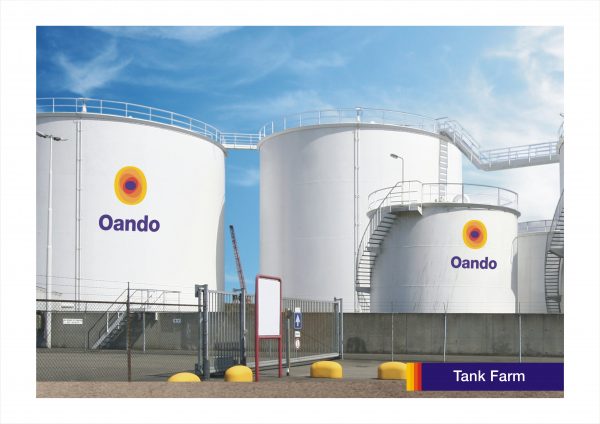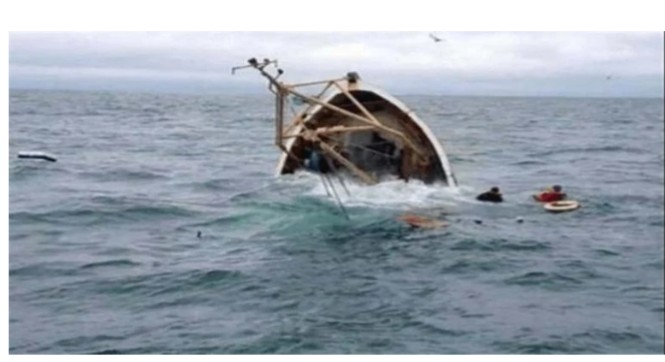War Induced Wheat Crisis: Flour Mills, Others May Shut Down
By Kenneth Jukpor & Frank Odinukaeze
* Another survival window for naira
* Massive job losses, food crisis loom – NBS
As the world was gradually recovers from the devastation of Covid-19 pandemic that destroyed many lives, distorted world order, damaged economies, another major catastrophe struck with the invasion of Ukraine by Russia and findings have revealed new devastating effects for Nigeria’s economy even as there are new opportunities to strengthen the naira.
While the world has not remained the same since the pandemic, the war has once again plunged the global economy into distress, with inflation rising above 6 percent according to a report by Economist Intelligence Unit (EIU), a research and analysis division of the Economist Group based in Britain.
EIU report predicts that oil prices will probably rise above $100/barrel as long as the conflict rages in Ukraine; gas prices will rise by 50 percent this year on top of a fivefold rise last year, prices of agricultural commodities like; wheat, maize, and other commodities will soar. Consequently, the supply chain will be interrupted with land based trade routes between Asia and Europe will be disrupted as transit through Russia becomes more difficult or impossible from a compliance, reputational or safety perspective.
Meanwhile, data from National Bureau of Statistics (NBS) shows that Nigeria imported durum wheat worth over N128.1 billion in 9 months in 2021 while the nation recorded N144.1 billion import in the full year of 2020.
Durum wheat is used to produce a range of food products, such as; semolina, pasta, burghul wheat, couscous, wheat bread, and desserts.
Currently, Nigeria is battling with high inflationary pressure and food supply chain disruptions; the surge on commodities prices further puts a strain on the local market, since Nigeria largely depends on importation to meet local demands.
With growing concern by Nigerians over what happens if the war in Ukraine continues unabated and supply chain of commodities like durum wheat disrupted, MMS Plus engaged the Chairman of Nigerian Port Consultative Council, Otunba Kunle Folarin, who expressed worry over the impending scenarios.
Folarin, who is also an economic expert, expressed worry that access to raw materials for concerned factories has become problematic, even as he stressed that the consequence will be closing down of companies whose operation rely on wheat importation.
“If this war lingers, certain companies will be forced to shut down without access to their raw materials or they will reduce their operations and workforce because there will be no work for them to do. Certainly, unemployment will increase further as companies like Flour Mills, Macaroni plants and others will suffer most. These are the certainties and we can describe them as the plural effects of economic action of ongoing war between Russia and Ukraine,” Otunba said
Otunba Folarin stressed the need for the Nigerian governments to look inwards for the survival of industries in the country and also its citizens.
“If we use wheat the way we use it to produce flour and we need flour in the way we need to feed our people, definitely, we should start thinking of growing wheat or seek other alternatives to the flour,” he said.
According to him, 70 percent of wheat which is used in making bread is being affected in Nigeria, even as he pointed out that Russia and Ukraine account for up to 50 percent of the world wheat production and there are already shortages and increased prices for the product globally with Europe recording almost 40 percent hike.
He said the war in Russia and Ukraine has badly affected the supply chain to Nigeria as vessels are not being able to go to Russia or Ukraine to load wheat and the price of bread has increased because it is produced from flour which is gotten from wheat.
Following the war between Russia and Ukraine, western countries had imposed several sanctions on Russia, thus halting trade agreements, isolating the economy in various other capacities.
It should be noted that Russia is the second largest exporter of crude oil in the world and the nation has begun efforts to further destabilize the global economy with foreign exchange for its oil in gold and Russian Ruble having already converted its foreign reserve from dollar to gold.
China, which has been in a cold economic war with the U.S, has also subtly aligned with Russia and China is the world’s largest importer of oil. In 2020, China alone imported more oil and its products than any other region, at roughly 13 million barrels per day and the nation also prefers Chinese yuan as forex for its goods.
There are speculations that this Russia-Ukraine war, if prolonged, would leave a lasting economic change around the globe with dollars set to be displaced as major currency for foreign exchange as nations will prioritize their currencies for trade.
Meanwhile, an ex-banker and CEO of Quiet Dimensions Limited, Mr. Ime Udoma has admonished the Nigerian government to take a cue from the Russian-Ukraine war and sanctions which has seen Russia demand rubbles as exchange for its exports.
Udoma stated that Russia has shown that dollar doesn’t have to be the main currency for trading; adding that Russia’s decision to ask for its currency in exchange for their products should teach the Nigerian government to demand naira for crude oil sales.
“We can begin now to ask for naira in exchange for our crude oil. Over time the pressure from other countries to get naira will improve the value of the currency. People should source for naira in the streets of New York, London, India and China who are the major buyers of Nigeria’s oil.”
“Naira will begin to compete with other leading currencies when importers start sourcing for naira in other nations. These nations need Nigeria’s crude oil and they will be forced to pay in naira if the Nigerian government demands naira. If Russia can insist that people buy in their currency, Nigeria can do the same,” he said.
Udoma, however, expressed worry that Nigeria is looking for where to turn to for wheat import and wheat can’t be grown overnight in the country.
“The challenge isn’t that wheat wouldn’t grow, but we never planned for this. I know of a company working in partnership with the federal government to do an African Growth and Opportunity Act (AGOA) programme on wheat with the seedlings coming from Turkey. The plan is to give the seeds to farmers as a loan, so they grow the product and sell it back to the government. However, the problem is that it takes 9 months to grow and Nigeria’s population is so large that the entire produce can be consumed in less than two weeks, so we will go back to the same problem,” he stated.
Meanwhile, he asserted that there is also another challenge leading to food scarcity in Nigeria with the security situation in the country making most farmers unwilling to go farm to do their business because of numerous killings and kidnappings.
The significant increase in the cost of transportation, food items, and other necessities in Nigeria indicates a continuous drawback in the purchasing power of Nigerian citizens, but there are also opportunities to draw some positives from the Russia-Ukraine war, experts have argued.








